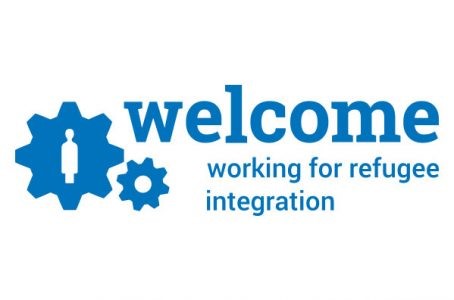UNHCR awards a recognition to Italian companies engaged in the labour inclusion of refugees

Recognizing the potential of the private sector’s active involvement in the realization of an effective inclusion of refugees in the Italian society, starting from 2017 UNHCR will award a recognition to companies that most distinguish themselves in promoting the labour placement of refugees and in supporting their integration process in Italy.
The mentioned recognition will be assigned by awarding the “Welcome. Working for Refugee Integration” Logo, that companies will be allowed to use for communication purposes.
The selected companies will pursue a dual goal alongside UNHCR:
On one hand, the logo will prove the commitment to and the promotion of an inclusive society model, pursuing awareness aimed at preventing and tackling sentiments of xenophobia and racism against asylum seekers and beneficiaries of international protection;
On the other hand, the exposure of the logo will be a sign of recognition for companies that actually made efforts to facilitate the employment of beneficiaries of international protection, taking on part of the responsibility to build a society more sensitive to the needs of those who were forced to leave their countries because of war, conflicts and persecution and chose to start a new life in Italy.
Meeting UNHCR’ due diligence requirements is the prerequisite for the companies to be awarded the logo.
The logo will be awarded on a yearly basis according to the unquestionable assessment of a Committee specifically formed by professionals coming from different backgrounds and that are dealing in different ways with the social responsibility within the private sector.
The logo will be awarded to the companies that put in place one of the following actions:
1. Companies that, in line with their possibilities, distinguished themselves for the new hiring of beneficiaries of international protection or for supporting them on an actual labour integration, also through effective training programmes or innovative and high-quality language learning programmes;
2. Companies that fostered the social inclusion process of the employees who are beneficiaries of international protection within their own local environment, through actions aimed at facilitating intercultural dialogue or concrete actions of support;
3. Companies that supported the creation of self-employment businesses by beneficiaries of international protection, through actions of free of charge support addressed to start-up ventures.
With regard to awarding the logo, a preferential attention will be given to those companies that, besides the above-mentioned activities, are committed to supporting refugees even out of the national boundaries. Furthermore, special consideration will be given to the companies that foster labour integration of women beneficiaries of international protection, demonstrating greater sensitivity toward gender dimension and the issue of equal opportunities.
Applications can be sent by the company itself or its employees, as well as by trade associations, labour unions, Chambers of commerce, local institutions, associations and cooperatives engaged in the assistance and the safeguard of beneficiaries of international protection.
UNHCR believes that the private sector in general and single companies in particular, have a crucial role in the development of new policies for refugee integration. As pointed out by the Secretary-General of the United Nations Ban Ki Moon, the companies participating in the Global Compact are called to play an active role in managing the humanitarian refugee crisis by implementing integration strategies that take into account both the needs of refugees and the features of the companies involved.
The activities for the inclusion of refugees may represent a new horizon for the companies’ social engagement. To this end, it is increasingly necessary to develop a collaboration between the private sector and the various actors, institutional and not, dealing with the reception of beneficiaries of international protection, through which it is possible to build shared and participated pathways for integration.

